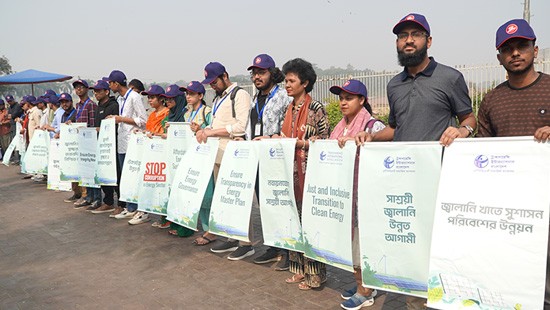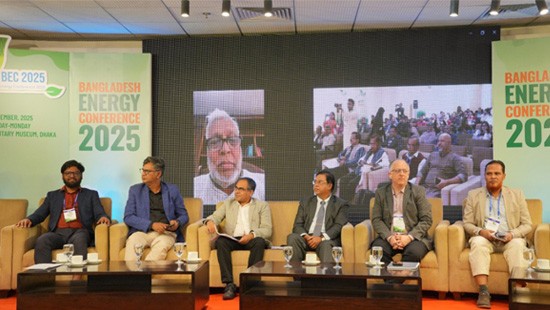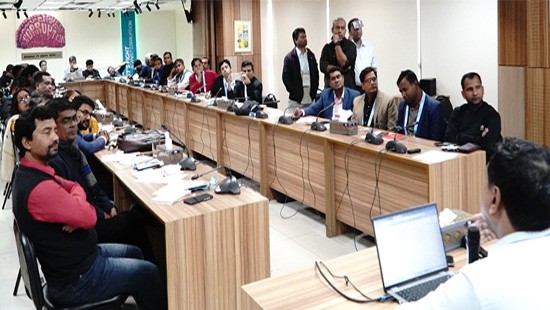Published: 05 October 2023

Bangladesh has long been grappling with the scourge of corruption across multiple levels. Despite robust legal frameworks and anti-corruption policies, a recent comprehensive review of the United Nations Convention Against Corruption (UNCAC), conducted by Transparency International Bangladesh (TIB), reveals significant challenges hindering the country's efforts to combat corruption and money laundering.
TIB's second-cycle review of Bangladesh’s UNCAC commitments unveiled key insights in a press conference on 5 October 2023.
The UNCAC Review:
The UNCAC, a globally recognised and legally binding treaty, aims to tackle corruption on multiple fronts. TIB's second-cycle review focused on Corruption Prevention (Chapter II) and Stolen Asset Recovery (Chapter V), shedding light on the progress and pitfalls Bangladesh faces in implementing UNCAC's principles.
Key Findings:

Bangladesh encounters substantial challenges in enforcing its commendable anti-corruption policies, with pervasive weaknesses in nearly all UNCAC-outlined areas. While the legal framework against public sector corruption is robust, it falls short in addressing private sector corruption and foreign bribery.
The Anti-Corruption Commission (ACC) contends with unwarranted rule changes, requiring prior permission to arrest public officials under investigation, and faces limited human and investigative resources. Political pressure and administrative obstacles infiltrate the anti-corruption bodies, affecting their independence.
Besides, persistent challenges exist in public sector employment, political financing and money laundering control along with inadequate whistle-blower protection and civic space limitations. Addressing these issues is crucial to fortify Bangladesh's anti-corruption efforts and promote transparency and accountability.
According to TIB’s review, Bangladesh has the potential to combat money laundering with its strong legal framework and membership of the Egmont Group, a global network of financial intelligence units. However, a critical issue is the underutilisation of this resource. Furthermore, the lack of coordination with the ACC, coupled with capacity constraints, exacerbates money laundering in Bangladesh. This lack of coordination and capacity hinders effective enforcement of the anti-money laundering and stolen asset recovery-related measures, making it easier for illicit financial activities to persist.
A Call to Action:
TIB Executive Director (ED) Dr. Iftekharuzzaman, in his UNCAC review presentation, emphasised a coordinated effort and robust enforcement practices to deter corruption on multiple fronts.
“Anti-corruption and anti-money laundering steps are not taken strategically. The institutions have been burdened with additional responsibilities to combat money laundering, resulting in capacity gaps and coordination challenges,” he said.
“We believe that the government has a roadmap in place to repatriate laundered money. However, alongside gaps in initiative, capacity, and coordination, there is a lack of resolution and courage, especially considering the influence of many perpetrators. Strong will from the government and enhanced enforcement mechanisms can bring positive changes (in this regard),” the TIB ED added.
The findings from TIB's UNCAC review underscore the urgency of addressing corruption challenges in Bangladesh. TIB’s recommendations include ensuring full autonomy of the ACC and the lower judiciary, removing restrictions on civic spaces, and enhancing transparency and accountability in public financial management.






